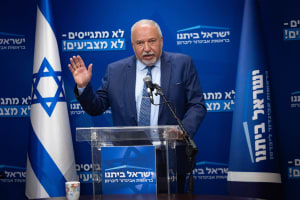How will Syria’s readmission into the Arab fold affect Israel?
Rehabilitation of the Assad regime will not yield gains in the realm of security for Israel

What has been a long time in the works has now become a reality: after 12 years of suspension due to crackdowns on peaceful protests which caused the Syrian civil war, the regime of President Bashar Al-Assad has been readmitted into the Arab fold.
Although these efforts intensified in the wake of the devastating earthquake in Turkey and Syria in the beginning of February, years of silent diplomatic efforts on the part of Arab nations like the UAE, Jordan and Egypt preceded this development.
While the readmission itself is a largely symbolic gesture, drawing to a close any hopes of a democratic revolution in the wake of the Arab Spring, this new reality also has strategic implications for a variety of stakeholders in the region, including Israel. In the bevy of op-eds and analysis pieces that have been published about this topic in the last few months, the question of how this could impact Israel's security has largely been neglected.
One the one hand, it has been argued that normalization with the Assad regime is both a tactical and a moral blow for Israel, the U.S. and the rules-based international order more broadly: Syria was readmitted without reform and without severing its deep ties with Iran and its malignant Shia militias.
According to international media reports, Israel (in coordination with Russia) has been able to exploit the weakness of the Syrian regime in order to execute strikes on weapons and materiel making their way from Iran through Syria to Lebanon.
This campaign has been dubbed the “campaign between wars'', a strategy of low-intensity, preemptive warfare, through which Israel has been trying to push back against Tehran’s regional proxy activities.
However, once the Assad regime is rehabilitated and the new security architecture is in place, it would make it harder for Israeli forces to continue this campaign with the same freedom as before and likely lead to a greater number of precision-guided munition (PGM) and other strategic weapon systems at Israel’s border.
Moreover, seeing as substantial efforts are underway to end the war in Yemen, Iran, which is supporting the Houthi rebels, may seek to shift resources from Yemen to Syria in order to increase pressure on Israel and US troops in the region. According to recent reports, facts on the ground seem to support this hypothesis.
On the other hand, there have been those claiming that normalization with Assad is the right move.
Proponents of this view argue that the growing involvement of Gulf nations has the potential to be a moderating influence on the Assad regime and serve as a counterweight to the current Iranian dominance in Syria.
Gulf countries have on numerous occasions stated that isolation of the Assad regime has not yielded positive results and that a new approach is needed.
Not only do these countries have an interest in Syria due to Iranian involvement, they also hope to decrease the influence of Turkey, which has a significant military and civilian presence in Syria’s north.
Additionally, they also seek to improve the humanitarian situation within Syria and limit the trade of the pernicious drug Captagon, an amphetamine that has swept billions into the Syrian state coffers and is wreaking havoc across the region.
For Israel, these later issues are of course far less consequential in comparison to how this will influence the presence of Iran in its neighborhood.
The idea that Arab involvement in Syria will make Assad less dependent on Tehran is an illusion.
This is because Iran is the main reason that throughout the decade-long civil war Assad has been able to hold on to power, and therefore hopes that Assad would simply discard his loyalties to his backers are misguided.
Given years of experience of dealing with Syria, Israel would not be unhappy with regional cooperation that could maybe even have a spillover effect into other areas.
Still, while under certain circumstances positive developments could follow, the more likely scenario for Israel is that the rehabilitation of the Assad regime will not yield gains in the realm of security but will instead lead to a decline in Israel’s ability to maneuver and execute necessary action in Syria to curb Iran’s aggression.
As a result, this will increase the likelihood for a flare-up on the already volatile northern front. Of course, this also implies cooperation with Russia in Syria through the deconfliction mechanism will gain even greater importance, a fact that Israel should take into account in the context of its involvement in the war in Ukraine.
When I arrived in Washington a year ago, the issues of Palestine and Syria were the most neglected issues in Middle East foreign policy circles.
The fact that this is no longer the case for both, and in fact have risen to the forefront, illustrates the dynamism of politics in the Middle East, where one crisis or handshake can reframe the entire conversation.
The Syrian space is changing rapidly - the civil war is essentially over, Assad won and has been brought back into the Arab fold.
As Syria rebuilds, Israel must continue to disrupt Iran's pipeline of aggression while being aware that operating in this space will be much more complex than in the past.

Yaron Lischinsky holds a MA in Government, Diplomacy & Strategy from Reichman University in Herzliya and a BA in International Relations from the Hebrew University of Jerusalem. He currently works for the Ministry of Foreign Affairs in Washington, D.C.













